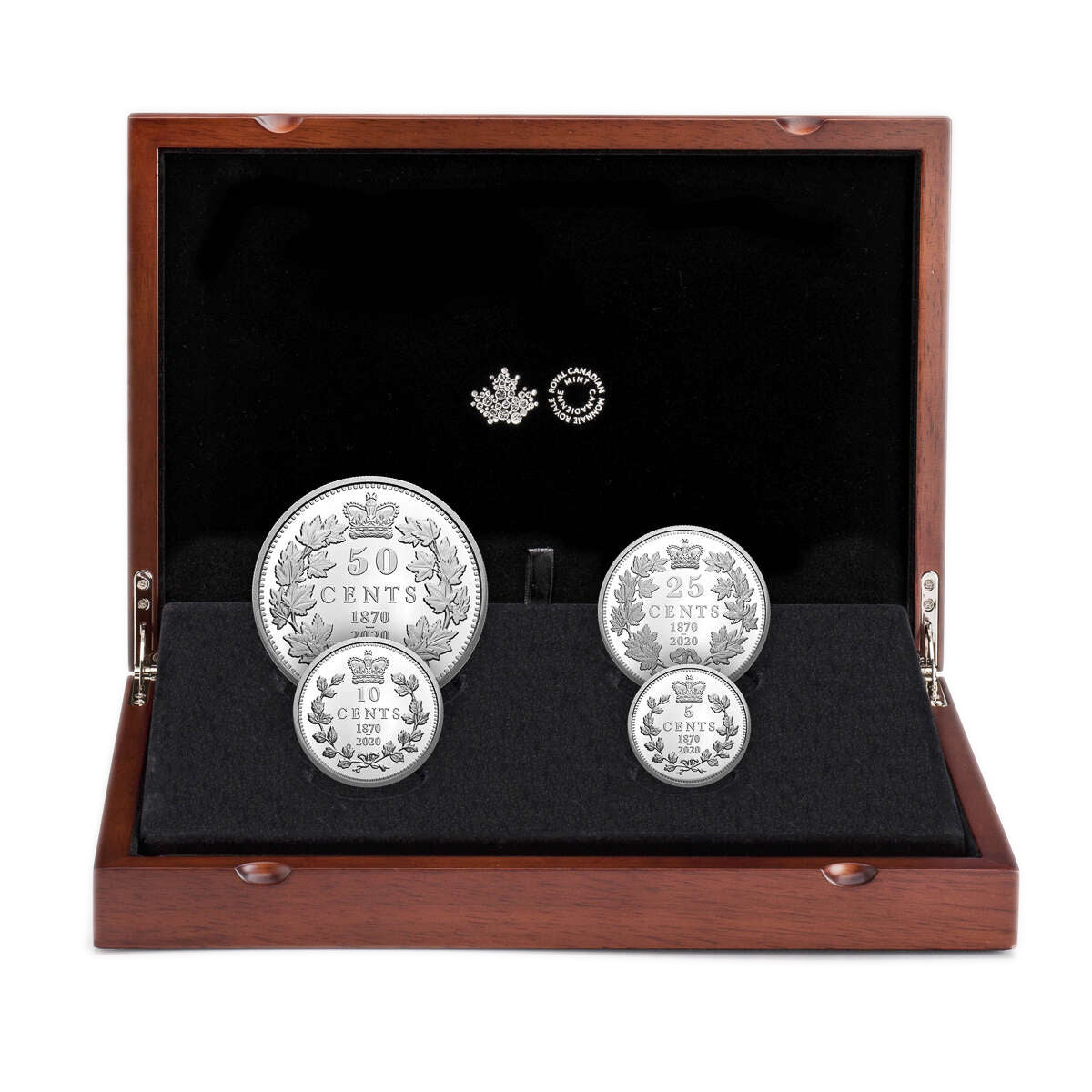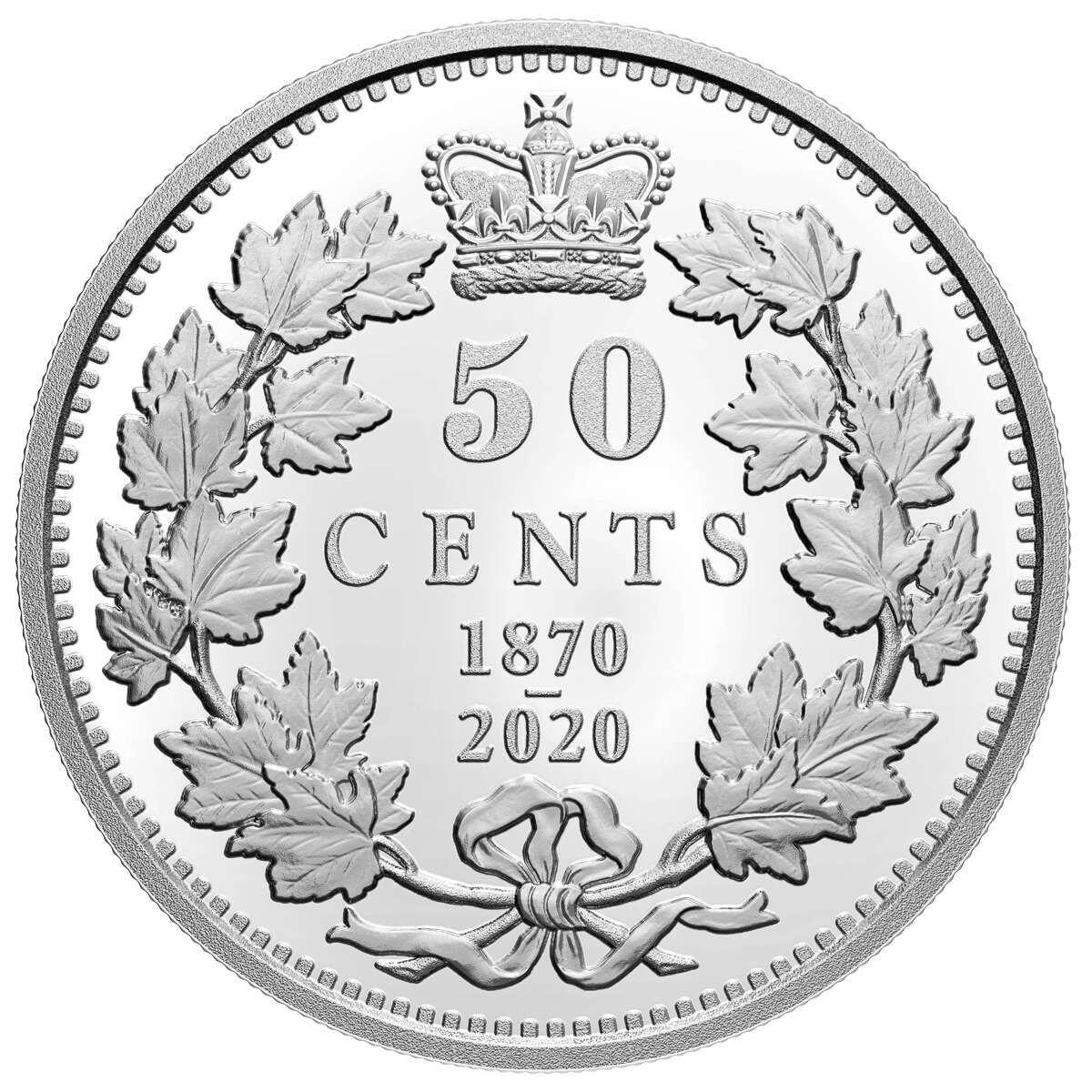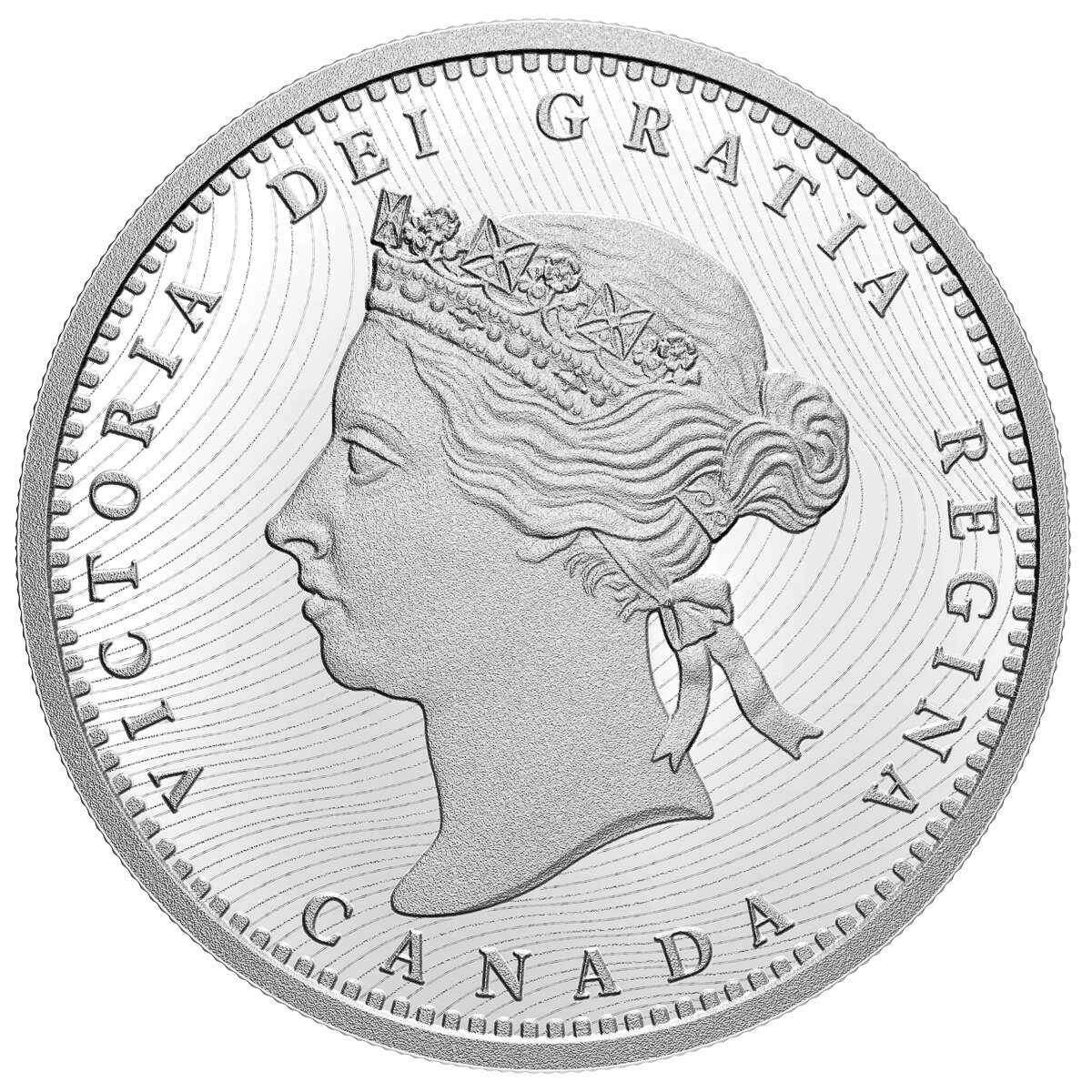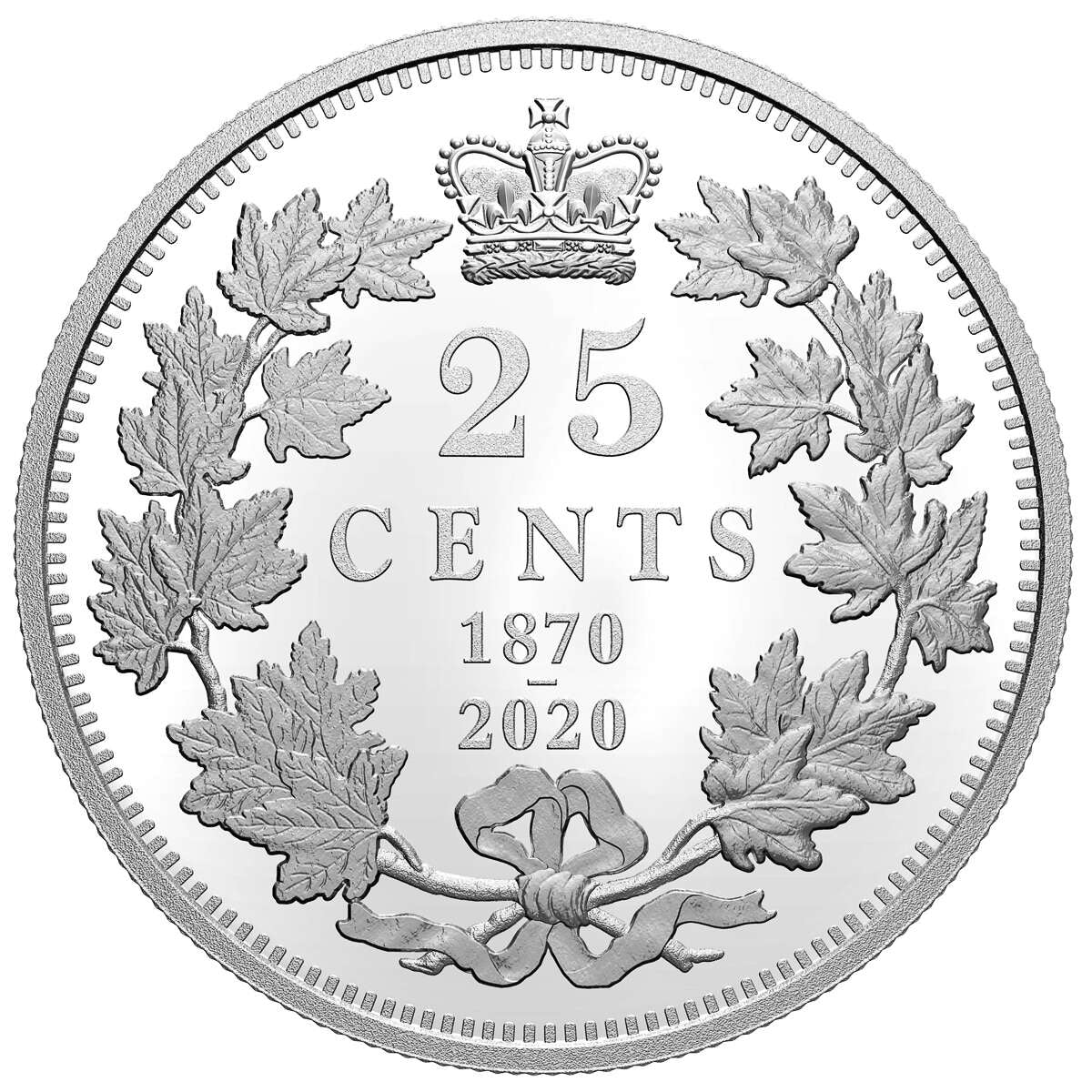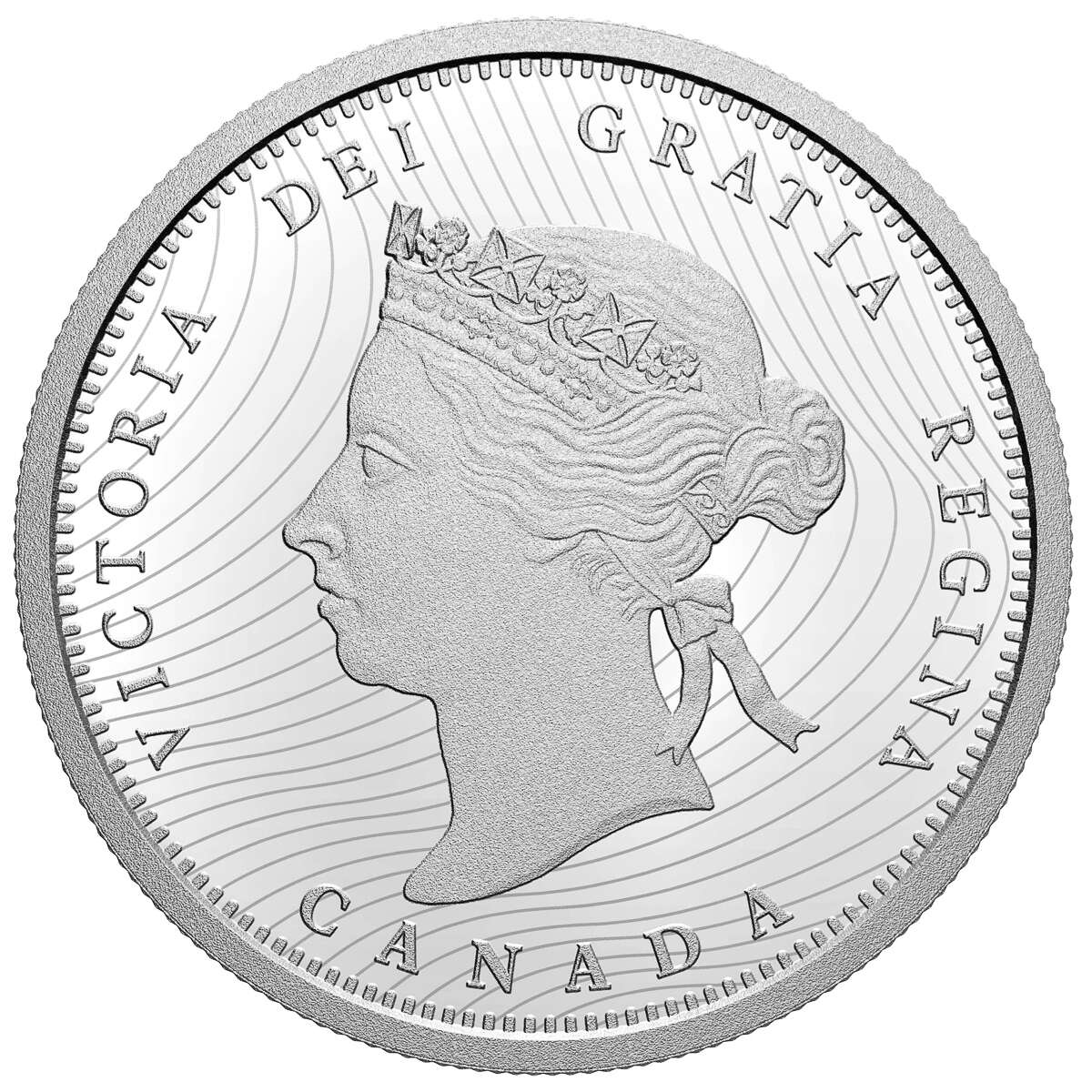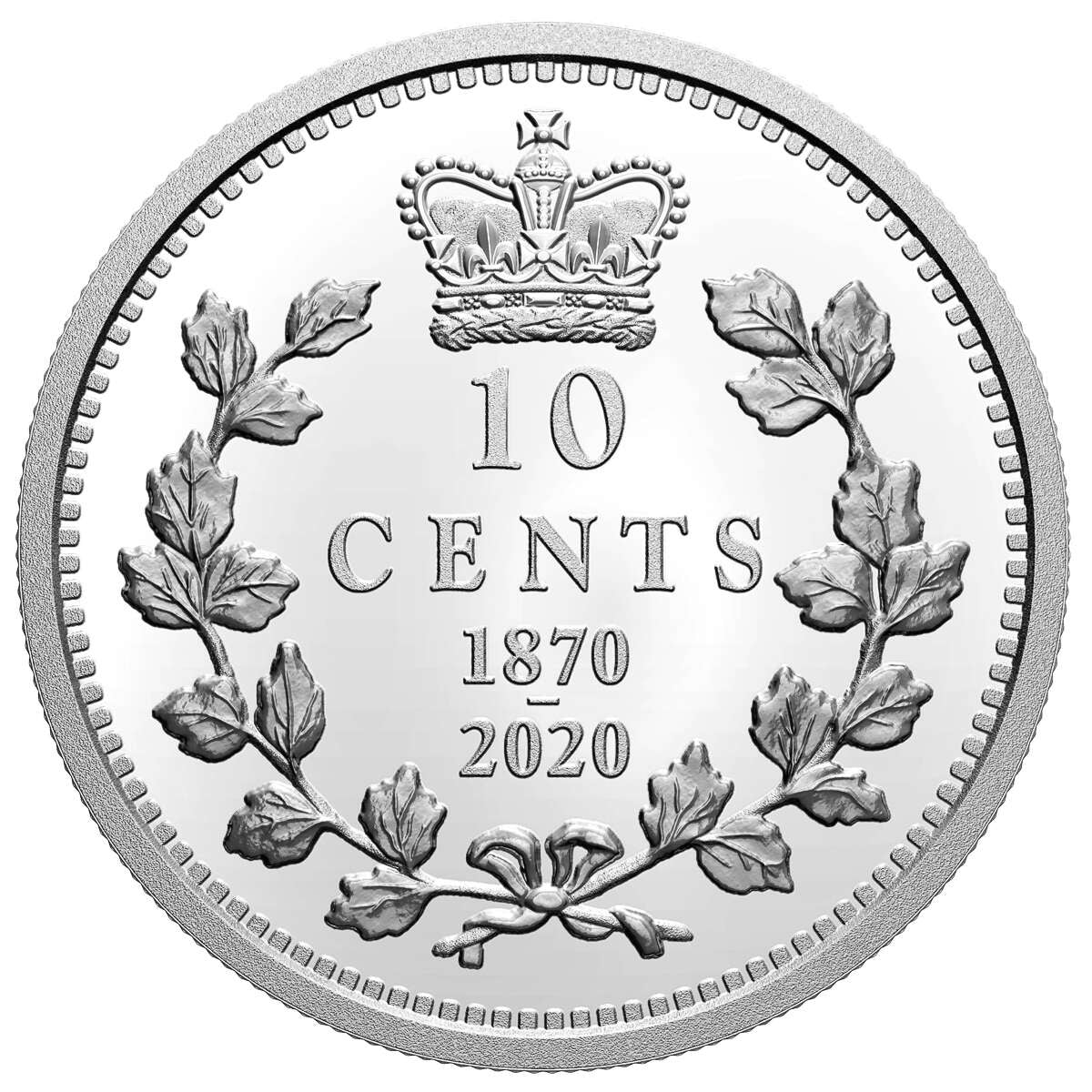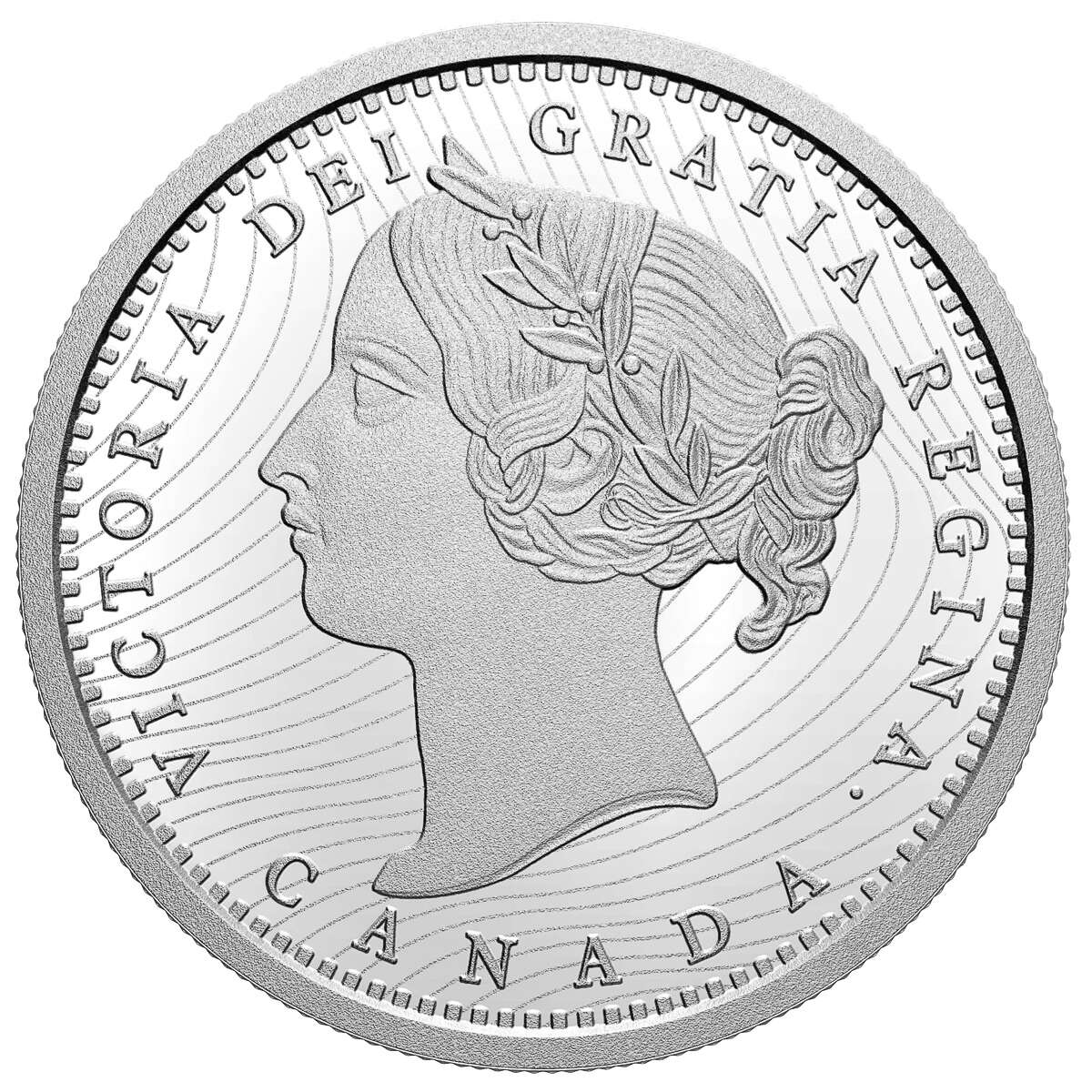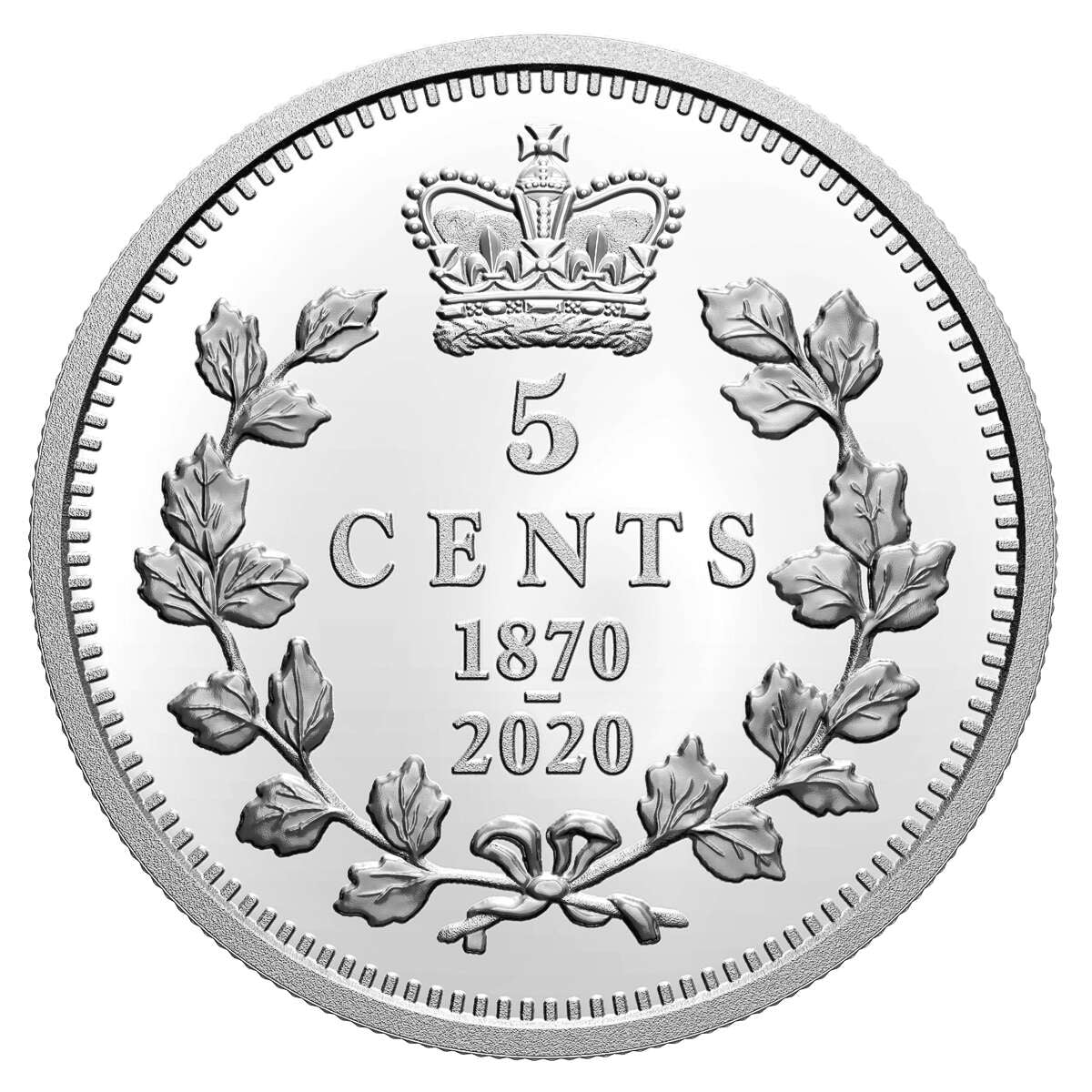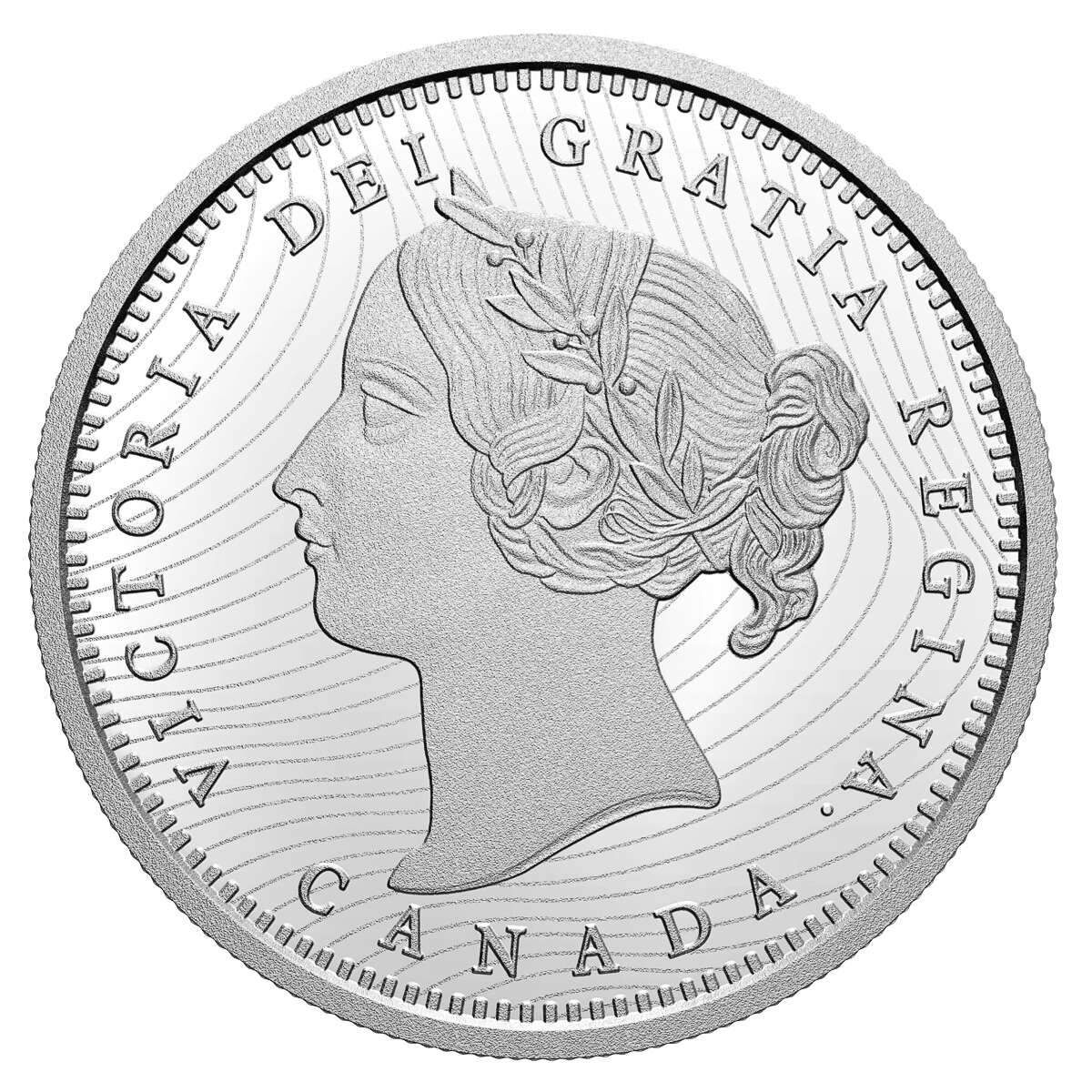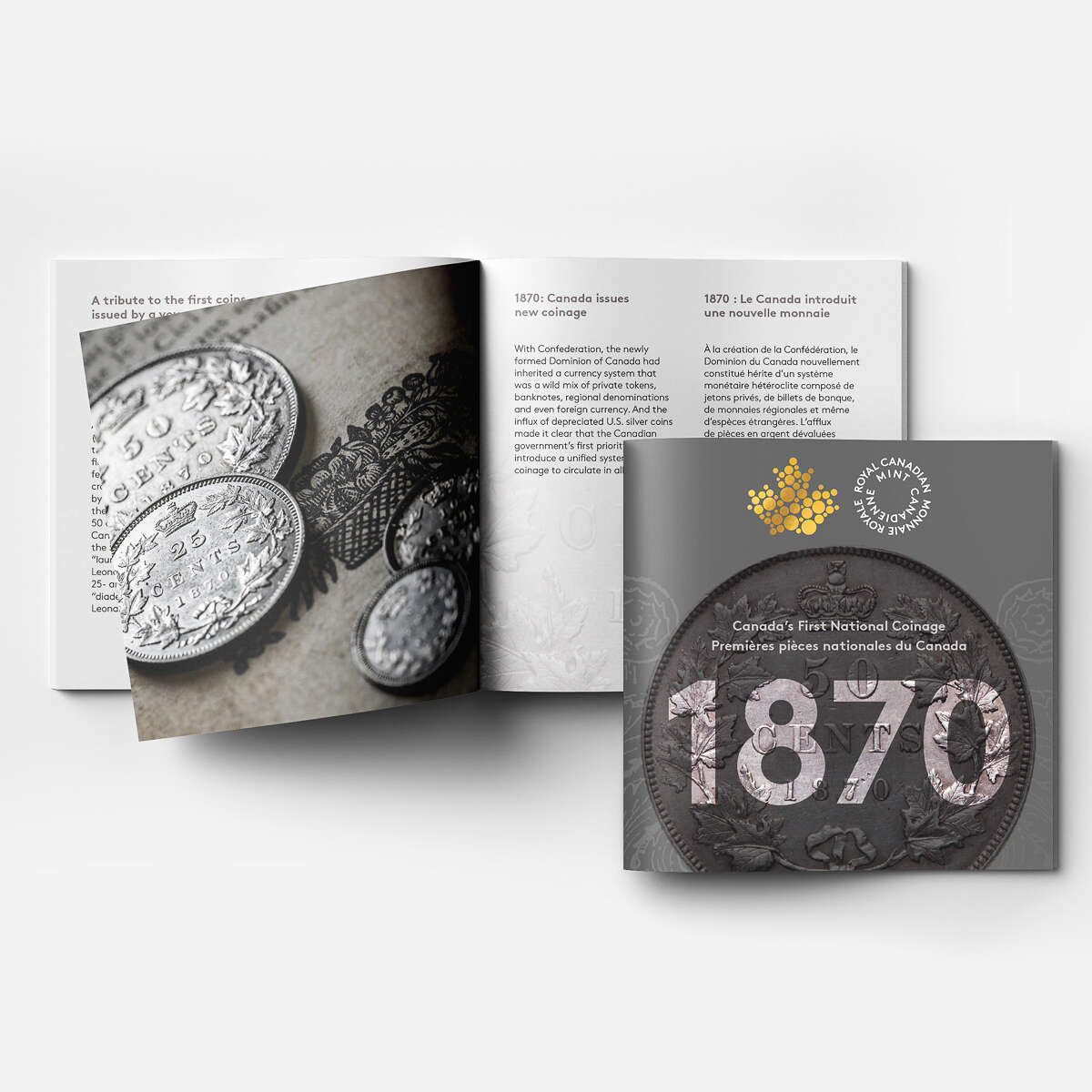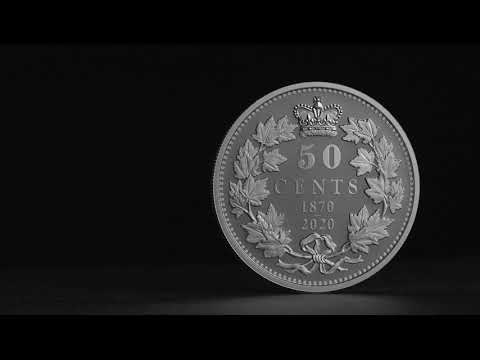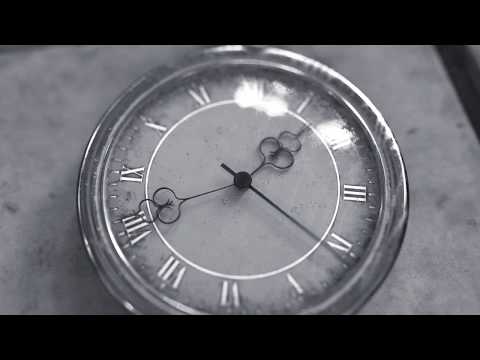Description
Step back in time 150 years to when the newly formed Dominion of Canada issued its first national coinage. These coins served as an important symbol of nationhood and fueled rapid economic growth. Today, the Royal Canadian Mint marks this anniversary with a large format double dated four piece collector set recreating the designs of 1870 and containing more than eight and a half ounces of fine silver. Matching the denominations issued in 1870, the collection includes a five ounce half dollar, a two ounce 25 cent coin, a one ounce 10 cent denomination, and a half ounce five cent denomination. With a mintage of just 850, each coin in this set represents the lowest mintage ever issued in Canada for each of the four denominations, including all circulation and collector issues.
While the pre-confederation Province of Canada (Ontario and Quebec) had issued coinage in 1858 in denominations of one cent, five cents, 10 cents and 20 cents, the first Dominion of Canada government under Sir John A. MacDonald recognized the problem of foreign and private coinage of varying qualities in circulation and seized the opportunity to establish a new symbol of autonomy and means to prosperity. To a achieve the vision of a connected nation from sea to sea, a high quality national coinage would be as important as a railroad, and could be completed in a much shorter time. Building on the designs from 1858, new Canadian coins were ordered from the Royal Mint in England, with the first coins arriving in 1870.
While the pre-confederation Province of Canada (Ontario and Quebec) had issued coinage in 1858 in denominations of one cent, five cents, 10 cents and 20 cents, the first Dominion of Canada government under Sir John A. MacDonald recognized the problem of foreign and private coinage of varying qualities in circulation and seized the opportunity to establish a new symbol of autonomy and means to prosperity. To a achieve the vision of a connected nation from sea to sea, a high quality national coinage would be as important as a railroad, and could be completed in a much shorter time. Building on the designs from 1858, new Canadian coins were ordered from the Royal Mint in England, with the first coins arriving in 1870.
The Design:
For all four denominations issued in 1870, the reverse design originally created by Leonard C. Wyon for the Province of Canada coinage was employed, featuring crossed maple boughs surmounted by St. Edward’s Crown. For the obverse, the five and 10 cent denominations maintained Wyon’s uncrowned young “laureate” effigy of Queen Victoria, while for the new denominations of 25 cents and 50 cents Wyon engraved a more mature crowned effigy of the Queen. The four coins in this 150 th anniversary commemorative issue are closely based on these same designs and effigies, using a large collector format and superb proof quality finish. The coins come presented in an attractive display case including Certificate of Authenticity and historic information.
For all four denominations issued in 1870, the reverse design originally created by Leonard C. Wyon for the Province of Canada coinage was employed, featuring crossed maple boughs surmounted by St. Edward’s Crown. For the obverse, the five and 10 cent denominations maintained Wyon’s uncrowned young “laureate” effigy of Queen Victoria, while for the new denominations of 25 cents and 50 cents Wyon engraved a more mature crowned effigy of the Queen. The four coins in this 150 th anniversary commemorative issue are closely based on these same designs and effigies, using a large collector format and superb proof quality finish. The coins come presented in an attractive display case including Certificate of Authenticity and historic information.

